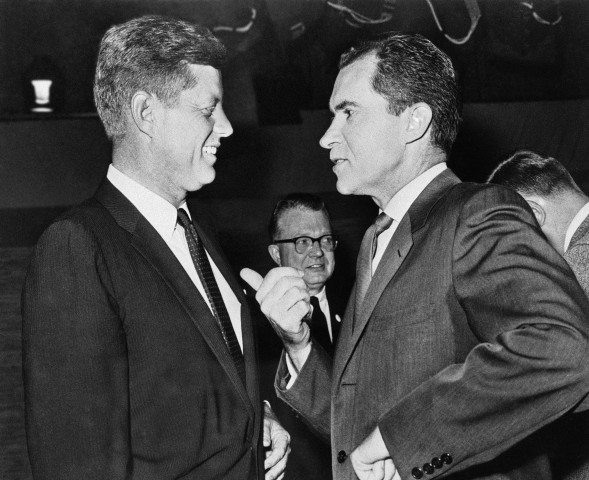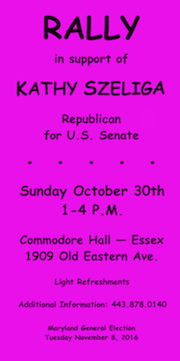
Vice President Richard Nixon, right, “debates” with John F. Kennedy in a TV studio following the 2nd Presidential Debate (Oct. 8, 1960). A month and a day later, Nixon declined to call for a recount of the election results.
In Pennsylvania, Stein shifts
from state to federal courts
TRICKY DICK AS STATESMAN
Bubba and the Oval Office BJ
By Alan Z. Forman
In the aftermath of the 1960 presidential election, when voting irregularities in Illinois and Texas threatened to overturn John Kennedy’s razor-thin victory over Richard Nixon, the losing Republican candidate reluctantly accepted the “will of the people” and refused to call for a recount.
“It’d tear the country to pieces,” the then-incumbent Vice President instructed his chief speechwriter and adviser, Bryce Harlow, who was pushing hard for a recount, and brushed aside all pleas to challenge the result.
“[We] can’t do that,” Nixon insisted.
Contesting the election by calling for a recount would place the legitimacy of Kennedy’s upcoming administration in question, Nixon said, and would be, among other things, “devastating to America’s foreign relations,” adding that, “What if I demanded a recount and it turned out that despite the voter fraud, Kennedy had still won?
“Charges of ‘sore loser’ would follow me through history and remove any possibility of a further political career.”
It may have been the future Watergate President’s finest hour; certainly it was Nixon at his most statesmanlike. No matter that his own dirty tricks in the 1960 campaign might well have come to light had he demanded a recount.
The likelihood that Nixon was as responsible for election irregularities that year is proved by the scandal that ultimately sunk his own presidency more than a decade later, when a team of inept burglars working in his behalf broke into Democratic National Committee headquarters at the Watergate office complex in Washington D.C. three days before the final presidential primary that spring.









